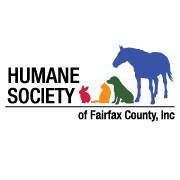We’d be happy to review your insurance coverage options with you! Give us a call at (703) 503-3100 or visit https://hardyinsuranceagency.com.
Author: caro
Why Choose An Independent Agency (Fairfax, VA)
We’d be happy to review your insurance coverage options with you! Give us a call at (703) 503-3100 or visit https://hardyinsuranceagency.com.
PET SAFETY: SPRING AND SUMMER HAZARDS

This is why we’ve dedicated this community cause cycle to supporting the Humane Society of Fairfax County, Inc.
This noble organization goes above and beyond to make sure these animals in need get the love and support they deserve. What’s more, they strive to promote humane education, to prevent all forms of cruelty to animals, both domestic and wild, by every legitimate means, and to assist the community with all matters pertaining to the welfare of animals.
Their website includes a ton of resources for pet owners and those looking to become one! And, since we’re in the business of protecting what matters to us most, we’d like to share their helpful pet safety tips!
Spring and Summer Hazards
Toxic to Cats and Dogs
- Rhododendron
- Foxglove
- Azalea
- Oleander
- Lily-of-the-valley
- Sago Palm
- Yew Plant
- Mountain Laurel
- Mushrooms
- Rhubarb leaves
- Easter Lily, Day Lily,
- Tiger Lily, other Lily species
- Castor Beans
Make sure your pets do not go on lawns treated with fertilizers, herbicides or insecticides until they have dried.
Other products that are dangerous:
- Mothballs, potpourri oils, coffee grounds
- Handmade craft dough, fabric softener sheets, dishwashing detergent, batteries, cigarettes, alcoholic drinks, pennies and engine coolant (radiator fluid)
Products containing PHENOL – (Pine-sol – Lysol) are especially dangerous to cats!
When using rat, mouse, snail or slug baits, or ant or roach traps, place the products in areas that are inaccessible to your pet. Some baits contain sweet-smelling ingredients such as jelly, peanut butter or sugar, which can attract you pets.
Horse Hazards
- Wilted Red Maple leaves
- Black Walnut (sometimes in shavings)
- Oak (especially new-growth leaves in the springtime)
- Taxus species – All Yews, Oleander, and Rose Laurel
- Rhododendron and Azalea
- White Snakeroot, Richweed, White Sanicle, Jimmy Weed, Rayless Goldenrod, Burrow Weed,
- Yellow Star Whistle, St. Barnaby’s Thistle, Russian Napweed
- Blister Beetles (sometimes found in alfalfa hay)
Bad for Birds
- Azalea
- Oleander
- Yew
- Rhododendron
- Household cleaners
- Pesticides
- Prescription and over-the-counter medicines
- Food and beverages containing onions, onion powder, chocolate, yeast dough, coffee, salt, tomato, and potato leaves and stems.
- Tobacco products
- Aerosol fumes found in hairsprays and perfumes
- Any source of smoke, fumes from overheated Teflon or Silverstone coated pans, glues, and paints.
If the worst does happen and your pet ingests something that may be toxic, consult your vet immediately or contact the APCC at 888-426-4435
Check out their website for more animal rescue news, information about humane education, animal care tips, and important local resources. And if you’re in the market for a new furry friend, feel free to explore their Adoption and Available Pets page! 

